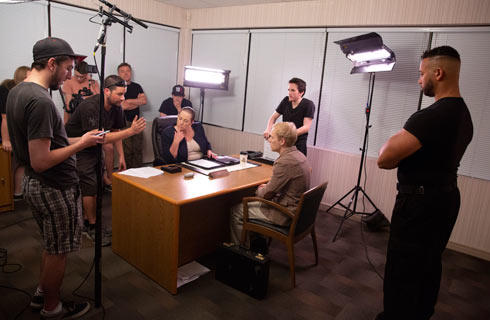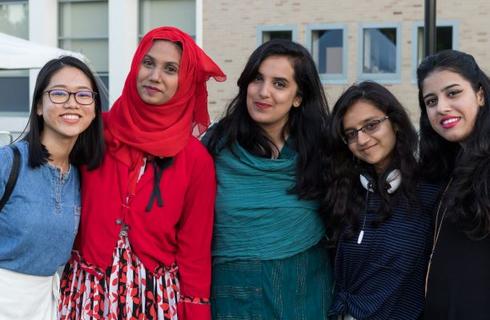国际学生入学条件
TOEFL score: Minimum requirement is 577 or better on the paper based test and 90 with at least a score of 22 in all on the four sections of speaking, listening, reading and writing on the internet based test.
1. Application forms: The University of Pittsburgh and the Department of Communication now accept online applications only.
2. Recommendation forms: Complete the applicant section; sign and forward to your references with your request for letters of recommendation. Your recommendation writers should be professors at your college or university instructors and who know your work well enough to evaluate it and to assess your capacity for graduate study in our department.
3. Fee: $50.00 payable via the online application. This fee is not refundable. Applications will not be processed without the paid fee. (If your zipcode isn't five digits you will need to put 00000 as your zipcode for payment.)
4. Enclose a statement of purpose explaining why you want to pursue graduate work in rhetoric and communication and why you are applying to our program. The statement should not exceed two typewritten pages.
5. Enclose a sample of your written work, which you believe represents your best effort. The ideal sample would be an article-length research humanities-oriented paper with proper documentation, sophisticated and nuanced argumentation, a broad base of evidence, and a deft summoning of scholarship from across humanities disciplines.
The minimum grade point average for admission to any graduate study at the University of Pittsburgh is 3.0
展开
IDP—雅思考试联合主办方

雅思考试总分
6.0
了解更多
- 雅思总分:6
- 托福网考总分:90
- 托福笔试总分:577
- 其他语言考试:NA
CRICOS代码:
申请截止日期:请 与IDP联系 以获取详细信息。
课程简介
The program of rhetoric at the University of Pittsburgh has enjoyed considerable prominence since the 1920s. Since then it has produced influential scholarship in the theory, the history and the criticism of rhetorical discourse. <br><br>Today's program encourages opening of new areas of study rather than settling into established territories. Informed by the demands of tradition and innovation, the program regards rhetoric as an orientation to the world and a situated practice. As such it promotes a rhetorical understanding of other disciplines and welcomes their contributions to it.<br><br>The Department has a long tradition of excellence in the study of rhetorical theory and practice from antiquity to the present day. Courses include rhetorical theory, classical rhetoric, rhetorical criticism, rhetoric and philosophy, critical theory, contemporary rhetoric, and visual rhetoric. Many students also draw from course work in media and cultural studies.<br><br>Others take their already strong background in rhetoric to work in other fields such as Bioethics, Latin American Studies, Russian and Eastern European Studies, Classics, Cultural Studies, Philosophy, History and Philosophy of Science, Gender, Sexuality, and Women's Studies, and Public and International Affairs.
展开




































